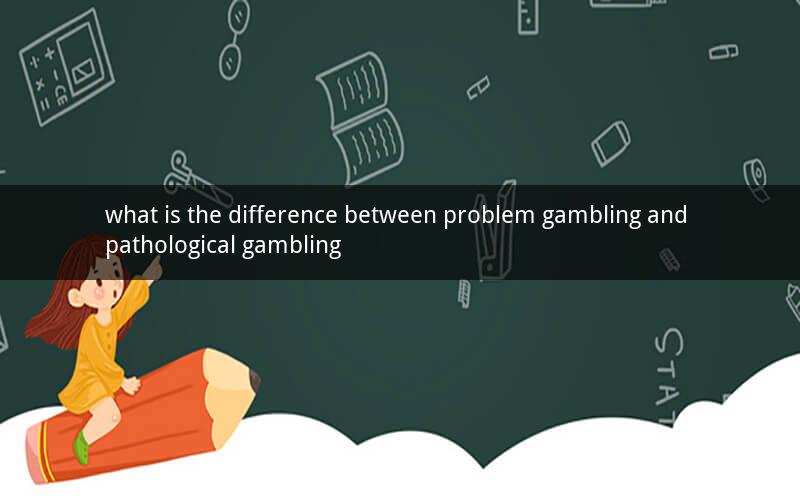
Table of Contents
1. Introduction to Gambling
2. Understanding Problem Gambling
3. Distinguishing Pathological Gambling
4. Key Differences Between Problem and Pathological Gambling
- Severity of the Condition
- Impact on Daily Life
- Treatment and Recovery
5. Conclusion
1. Introduction to Gambling
Gambling has been a part of human culture for centuries, offering excitement, entertainment, and the chance to win money. From simple games like dice and cards to complex casino games and online betting, gambling comes in various forms and is enjoyed by millions of people worldwide. However, for some, gambling can become an addiction, leading to significant problems in their lives.
2. Understanding Problem Gambling
Problem gambling, also known as gambling disorder, refers to a pattern of gambling behavior that leads to significant harm or distress. Individuals with problem gambling may experience one or more of the following:
- Unsuccessful efforts to control, cut back, or stop gambling.
- Gambling to escape problems or relieve negative feelings.
- Spending more time and money on gambling than originally intended.
- Jeopardizing or losing significant relationships, work, or education due to gambling.
- Continuation of gambling despite knowing the negative consequences.
3. Distinguishing Pathological Gambling
Pathological gambling, a more severe form of problem gambling, is characterized by intense preoccupation with gambling, which leads to significant problems in various aspects of life. People with pathological gambling may exhibit the following symptoms:
- Inability to control gambling behavior, even when consequences are apparent.
- Preoccupation with gambling, often leading to neglect of personal, family, and professional responsibilities.
- Repeated unsuccessful attempts to stop gambling.
- Compulsive gambling behavior that interferes with daily functioning and relationships.
- Development of physical symptoms, such as headaches, nausea, or insomnia, due to gambling.
4. Key Differences Between Problem and Pathological Gambling
While both problem and pathological gambling involve harmful gambling behavior, there are several key differences between the two conditions:
Severity of the Condition
Problem gambling is generally considered a mild form of gambling addiction, while pathological gambling is a severe and chronic condition. People with pathological gambling may experience more severe symptoms and have a harder time controlling their gambling behavior.
Impact on Daily Life
Problem gambling can cause significant problems in various aspects of life, such as relationships, work, and finances. However, individuals with problem gambling may still be able to maintain some level of functioning. In contrast, pathological gambling can lead to severe disruptions in daily life, making it difficult for individuals to hold a job, maintain relationships, or take care of themselves.
Treatment and Recovery
Both problem and pathological gambling can be treated, but the treatment approach may vary depending on the severity of the condition. Problem gambling may be treated with self-help strategies, counseling, or support groups. Pathological gambling often requires more intensive treatment, such as inpatient or residential treatment programs.
5. Conclusion
Understanding the differences between problem and pathological gambling is crucial for recognizing the severity of the condition and seeking appropriate treatment. While both conditions involve harmful gambling behavior, pathological gambling is a more severe and chronic condition that requires more intensive treatment. By recognizing the signs and symptoms of gambling addiction, individuals can take steps to seek help and improve their lives.
Questions and Answers
1. Q: What is the main difference between problem gambling and pathological gambling?
A: The main difference is the severity of the condition, with pathological gambling being more severe and chronic.
2. Q: Can problem gambling lead to pathological gambling?
A: Yes, problem gambling can progress to pathological gambling if left untreated.
3. Q: How can I tell if I have a gambling problem?
A: Signs of a gambling problem include spending more time and money on gambling, neglecting personal responsibilities, and experiencing negative consequences due to gambling.
4. Q: What are some common treatments for problem gambling?
A: Common treatments include self-help strategies, counseling, support groups, and inpatient or residential treatment programs.
5. Q: Can pathological gambling be cured?
A: Pathological gambling is a chronic condition, but it can be managed and controlled with appropriate treatment.
6. Q: How can I help someone with a gambling problem?
A: Encourage them to seek help, offer support, and be patient. You can also learn about gambling addiction to better understand the situation.
7. Q: Are there any medications for treating gambling addiction?
A: There are no medications specifically for treating gambling addiction, but some medications may help manage symptoms of co-occurring mental health disorders.
8. Q: Can online gambling lead to addiction?
A: Yes, online gambling can be just as addictive as traditional gambling, and it can be harder to control due to its convenience and accessibility.
9. Q: How can I prevent gambling addiction?
A: Set limits on your gambling, avoid risky situations, and seek help if you experience signs of a gambling problem.
10. Q: Can gambling addiction be genetic?
A: While genetics may play a role in gambling addiction, it is not solely determined by genetic factors. Environmental and psychological factors also contribute to the development of gambling addiction.